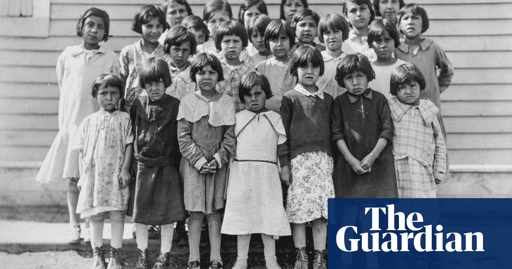Mary Annette Pember will publish her first book, Medicine River, on Tuesday. She signed to write it in 2022 but feels she really started work more than 50 years ago, “before I could even write, when I was under the table as a kid, making these symbols that were sort of my own”.
A citizen of the Red Cliff Band of Wisconsin Ojibwe, Pember is a national correspondent for ICT News, formerly Indian Country Today. In Medicine River, she tells two stories: of the Indian boarding schools, which operated in the US between the 1860s and the 1960s, and of her mother, her time in such a school and the toll it took.
“My mother kind of put me on this quest from my earliest memory,” Pember said. “I’ve always known I would somehow tell her story.”
More than 400 Indian boarding schools operated on US soil. Vehicles for policies of assimilation, perhaps better described as cultural annihilation, the schools were brutal by design. Children were not allowed to speak their own language or practice religions and traditions. Discipline was harsh, comforts scarce. As described by Richard Henry Pratt, an army officer and champion of the project, the aim was to “kill the Indian in him, and save the man”.
In the 1930s, Pember’s mother, Bernice Rabideaux, was sent with her siblings to St Mary’s Catholic Indian boarding school, on the Ojibwe reservation in Odanah, Wisconsin. Bernice was marked for life. On the page, Pember describes how as a young child she responded to her mother’s dark moods by hiding under the kitchen table, making her symbols on its underside. But she also writes about how her mother’s “terrible stories” about the “Sisters School”, about psychological and physical abuse, helped form a bond that never broke.


